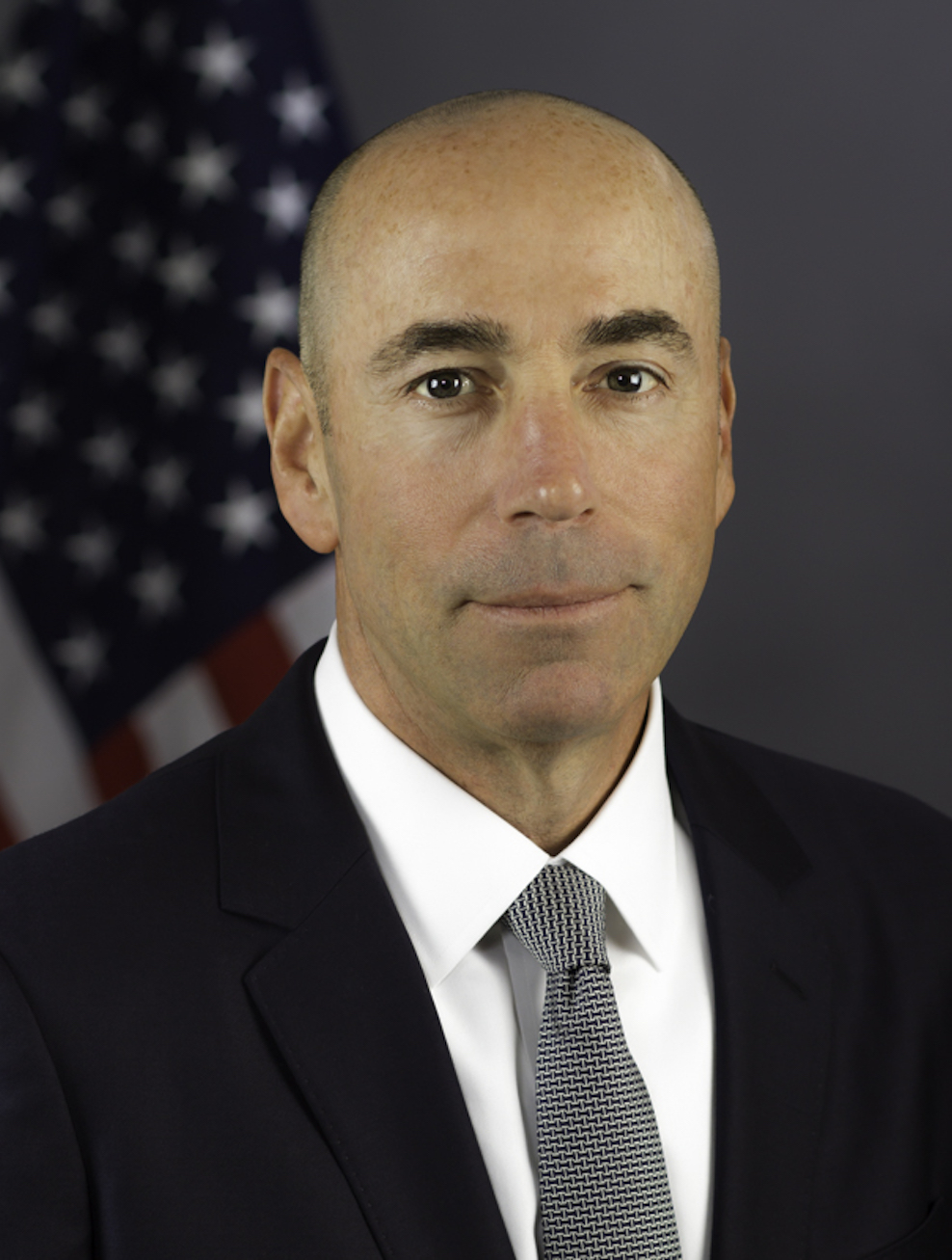Fintech
Enforcement Co-Director Steven Peikin to Depart

Washington, D.C.–(Newsfile Corp. – August 5, 2020) – The Securities and Exchange Commission today announced that Division of Enforcement Co-Director Steven Peikin will leave the agency on Aug. 14, 2020.
During his more than three years serving alongside Co-Director Stephanie Avakian, Mr. Peikin worked to better position the agency’s largest division to address emerging threats, increasing its efficiency and effectiveness in investigating and prosecuting violations of the federal securities laws.
Upon Mr. Peikin’s departure, Ms. Avakian will remain Director.
Under the Co-Directors’ leadership, the Enforcement Division redoubled its focus on the needs of retail investors and, at the same time, continued to police the broad landscape of the securities markets and vigorously pursue securities law violators. These efforts are reflected in the results: during the Co-Directors’ tenure, the Commission brought thousands of high-quality enforcement actions, obtained judgments and orders totaling over $13.5 billion in disgorgement and penalties, and returned more than $3.1 billion to harmed investors.
“Under the leadership of Steve Peikin and Stephanie Avakian, our Enforcement Division has increased its efficiency, flexibility, and impact.” said SEC Chairman Jay Clayton. “Their investor-first efforts have resulted in thousands of actions that have righted wrongs and, more importantly, both returned illicit gains to harmed investors and eliminated improper fees, providing lasting savings for years to come. Further, the efforts of the women and men in the Division to promptly address COVID-19 related misconduct demonstrate the flexibility, expertise and commitment to our mission that Steve and Stephanie’s leadership has fostered across the SEC.”
“Serving as Co-Director of the Division of Enforcement has been an incredible honor, and I am immensely grateful to Chairman Clayton for his confidence in me, for giving me the opportunity to again serve the public, and for his unwavering support of vigorous enforcement of the federal securities laws,” said Mr. Peikin. “I am tremendously proud of the accomplishments of the women and men of the Division of Enforcement, whose knowledge, expertise, and dedication to protecting investors and preserving market integrity inspired and impressed me every day. It has been a privilege to serve among them.”
“Steve has been a strong, unwavering leader for the Division,” said Stephanie Avakian, Co-Director of the Division of Enforcement. “By using his considerable expertise and impeccable judgment for the public good, he has been an example for all of us. He has been a terrific partner, and I will miss him.”
Mr. Peikin and Ms. Avakian have approached their roles guided by a single overarching ideal: prompt, vigorous enforcement of the federal securities laws is critical to combat wrongdoing, compensate harmed investors, and maintain confidence in the integrity and fairness of our markets. To achieve that ideal, in their first Annual Report of the Division of Enforcement, Mr. Peikin and Ms. Avakian identified five core principles that would guide the Division’s work under their leadership:
Focus on the Main Street Investor
Under the Co-Directors’ leadership, the Enforcement Division’s top priority has been the interests of long-term Main Street investors. Mr. Peikin and Ms. Avakian established several initiatives and devoted significant resources to protecting these market participants, who are often particularly vulnerable and deserving of the Commission’s attention. Among other notable highlights were the Commission’s Share Class Selection Disclosure Initiative, the creation of the Retail Strategy Task Force, the Teachers Initiative and Military Service Members Initiative, the detection and pursuit of large scale Ponzi schemes – including obtaining large scale recoveries of funds for victim investors – and significant efforts to combat microcap fraud.
Focus on Individual Accountability
A central pillar of Mr. Peikin and Ms. Avakian’s tenure has been holding individuals accountable for wrongdoing. Over 900 of the Commission’s standalone enforcement actions involved charges against one or more individuals. Those charged include many at the top of the corporate hierarchy, including chief executive officers, chief financial officers, and chief operating officers. The Commission continued its pursuit of gatekeepers such as accountants, auditors, and attorneys.
Keeping Pace With Technological Change
Recognizing that technology continues to transform not only our markets, but also the ability of wrongdoers to engage in misconduct, Mr. Peikin and Ms. Avakian adopted several new initiatives and processes to help the Division maintain the level of technological expertise necessary to protect investors from bad actors. In 2017, Mr. Peikin and Ms. Avakian established the Cyber Unit, a new, specialized unit, to spearhead the Division’s efforts to combat cyber-related threats and intrusions and to address violations involving digital assets and distributed ledger technology. The Cyber Unit led the Division’s significant efforts to combat fraud and misconduct involving ICOs, an emerging asset class that presented significant and novel risks to investors. The Division also pursued charges against public companies for failures to disclose cyber-intrusions, registrants for failing to safeguard customer information, and international hackers who invaded systems to steal inside information. Under Mr. Peikin’s and Ms. Avakian’s leadership, the Division significantly enhanced its ability to conduct sophisticated data analysis, including to detect insider trading, “cherry-picking” schemes, and the sale of unsuitable investment products or programs to retail investors.
Impose Sanctions That Most Effectively Further Enforcement Goals
Under Mr. Peikin and Ms. Avakian’s leadership, the Division focused on tailoring specific relief to best address the underlying charges. In addition to traditional monetary relief, the Division also sought non-monetary remedies, including over 1,600 bars and suspensions of wrongdoers, suspensions of trading in the securities of over 840 issuers – including dozens for COVID-19 related issues – more than 80 court-ordered asset freezes, and bespoke injunctions and undertakings tailored to underlying misconduct.
Constantly Assess the Allocation of Resources
To ensure the Division addresses the most significant market risks in the most effective manner, Mr. Peikin and Ms. Avakian continually assessed the allocation of the Division’s resources. Particularly, they focused on streamlining and improving processes in the Office of the Whistleblower, centralizing the Division’s efforts to distribute funds to victim investors, and increasing the speed and effectiveness of complex investigations of financial fraud and issuer disclosures.
COVID-19 Response
In March 2020, Mr. Peikin and Ms. Avakian convened and led the Coronavirus Steering Committee, through which they coordinated the Enforcement Division’s response to the threats presented by the COVID-19 emergency, as well as the ensuing dynamic market conditions. As a result of these efforts, the Commission has to date suspended trading in the securities of dozens of issuers who made claims related to COVID-19 and has filed five COVID-19 related fraud charges. The Steering Committee is coordinating scores of investigations relating to a wide variety of potential misconduct.
Prior to joining the SEC in June 2017, Mr. Peikin was Managing Partner of Sullivan & Cromwell LLP’s Criminal Defense and Investigations Group. From 1996 to 2004, Mr. Peikin served as an Assistant U.S. Attorney in the Southern District of New York. He was Chief of the Office’s Securities and Commodities Fraud Task Force, where he supervised some of the nation’s highest profile prosecutions of accounting fraud, insider trading, market manipulation, and abuses in the foreign exchange market. Mr. Peikin received his bachelor’s degree from Yale University and a law degree from Harvard Law School, both magna cum laude. Following law school, he served as a law clerk to the Honorable J. Edward Lumbard, U.S. Circuit Judge, Second Circuit, and the Honorable Robert P. Patterson, Jr., U.S. District Judge, Southern District of New York. Mr. Peikin is Adjunct Professor of Law at NYU Law School, has been a Visiting Scholar at Harvard Business School, and is President of the Board of Directors of the Center for Hearing and Communication, a nonprofit health and human services agency for the deaf and hard of hearing.
Fintech
Fintech Latvia Association Releases Fintech Pulse 2024: A Guide to Latvia’s Growing Fintech Hub

The Fintech Latvia Association has launched the latest edition of its annual publication, Fintech Pulse 2024, unveiling insights and resources that position Latvia as a thriving hub for European fintech.
Announced at this year’s Fintech Forum, the magazine is now available in digital format, offering a comprehensive guide for fintech professionals and entrepreneurs navigating the Latvian market and exploring its advantages.
This issue covers essential topics, from support tools provided by Latvijas Banka and newcomer roadmaps to Riga’s investor resources and fintech education opportunities. Readers will find the latest fintech news from Latvia, coverage of this year’s key industry events, and member insights on the future of fintech. The Fintech Landscape section provides a comprehensive overview of the Latvian fintech ecosystem.
Tina Lūse, Managing Director of Fintech Latvia Association, expressed excitement about the ecosystem’s growth: “We are excited to unveil the third annual edition of Fintech Pulse. This year has been pivotal for our ecosystem, and together with public sector stakeholders, we are enhancing financial inclusion, democratizing investments, and driving innovation throughout the sector. This is a testament to Latvia’s emergence as a fintech hub, establishing itself as an equal partner in innovation and support within the Baltic region.”
Minister of Finance Arvils Ašeradens highlighted Latvia’s fintech potential in the magazine, stating: “Latvia has already made strides in adapting its regulatory framework to support a stable financial system. Now, we encourage financial market players to invest in modern technologies to meet the growing demand for inclusive financial services and solidify Latvia’s position in the fintech landscape. We are confident that with the combined offer of the government, Latvijas Banka and Riga city, we are a great place to start your next scalable European FinTech!”
Minister of Economics Viktors Valainis expressed Latvia’s ambition in the magazine, stating: “Latvia wants to become a WEB 3.0. innovation hub and solidify itself as one of the leaders of a newly regulated EU crypto-asset market. We welcome international companies to choose Latvia, a flexible and fast-paced country, where you can obtain a MICA license in just 3 months. Open your office in Latvia, receive a MICA license and serve the whole EU market!”
The Fintech Latvia Association brings together fintech and non-banking financial service providers to represent their interests at both the national and international levels. It promotes sustainable development in Latvia’s financial sector by fostering reliable, responsible, and long-term industry practices that earn trust from consumers and regulatory authorities. The association is committed to supporting innovation and growth opportunities within the fintech landscape.
The post Fintech Latvia Association Releases Fintech Pulse 2024: A Guide to Latvia’s Growing Fintech Hub appeared first on News, Events, Advertising Options.
Fintech
Quantum Security and the Financial Sector: Paving the Way for a Resilient Future

The World Economic Forum (WEF) has released a pivotal white paper in collaboration with the Financial Conduct Authority (FCA), titled “Quantum Security for the Financial Sector: Informing Global Regulatory Approaches”. This January 2024 publication underscores the urgent need for global cooperation as the financial sector transitions from a digital economy to a quantum economy, highlighting both the immense opportunities and cybersecurity challenges posed by quantum computing.
Quantum: A Double-Edged Sword for Finance
Quantum computing offers transformative benefits for the financial sector, such as accelerated portfolio optimization, enhanced fraud detection, and improved risk management. Yet, it simultaneously threatens the very foundation of cybersecurity. With quantum’s ability to break traditional encryption methods, sensitive data and financial transactions face significant risks. The white paper warns that such vulnerabilities could erode trust in the financial system and destabilize global markets.
The urgency to prepare is evident, with some quantum threats, such as “Harvest Now, Decrypt Later” attacks, already emerging. Governments and regulators, including the United States with its National Security Memorandum on Quantum (2022), have begun advocating for quantum security readiness by 2035. However, as noted in the paper, transitioning to a quantum-secure infrastructure is a monumental task requiring unprecedented coordination between regulators, industry leaders, and technology providers.
A Collaborative Framework: Four Guiding Principles
To address the complex challenges posed by quantum technologies, the WEF and FCA have proposed four guiding principles to inform global regulatory and industry approaches:
- Reuse and Repurpose: Leverage existing regulatory frameworks and tools to address quantum risks, rather than creating entirely new systems.
- Establish Non-Negotiables: Define baseline requirements for quantum security, ensuring consistency and interoperability across organizations and jurisdictions.
- Increase Transparency: Foster open communication between regulators and industry players to share best practices, strategies, and knowledge.
- Avoid Fragmentation: Prioritize global collaboration to harmonize regulatory efforts and avoid inconsistencies that could burden multinational organizations.
These principles aim to create a unified, forward-looking strategy that balances innovation with security.
A Four-Phase Roadmap for Quantum Security
The white paper introduces a phased roadmap to help the financial sector transition toward quantum security:
- Prepare: Raise awareness of quantum risks, assess cryptographic infrastructure, and build internal capabilities.
- Clarify: Formalize engagement between stakeholders, map current regulations, and model the cost and complexities of transitioning to quantum-safe systems.
- Guide: Address regulatory gaps, translate technical standards into actionable frameworks, and develop industry-wide best practices.
- Transition and Monitor: Implement cryptographic management modernization and adopt iterative, adaptable regulatory approaches to remain resilient in the quantum economy.
This roadmap emphasizes adaptability, encouraging stakeholders to continuously refine their strategies as quantum technologies evolve.
The Path Forward: Collaboration as a Catalyst
The transition to a quantum-secure financial sector is not merely a technological shift but a comprehensive rethinking of how industries and regulators approach cybersecurity. The interconnected nature of global finance means that collaboration between mature and emerging markets is crucial to avoid vulnerabilities that could undermine the entire system.
Regulators and financial institutions must act with urgency. As Sebastian Buckup, Head of Network and Partnerships at the World Economic Forum, notes in the report:
“The quantum economy era is fast approaching, and we need a global public-private approach to address the complexities it will introduce. We welcome this opportunity to collaborate with the FCA to chart the roadmap for a seamless and secure transition for the financial services sector.”
Similarly, Suman Ziaullah, Head of Technology, Resilience, and Cyber at the FCA, emphasizes:
“Quantum computing presents considerable opportunities but also threats. The financial sector relies heavily on encryption to protect sensitive information, the exposure of which could cause significant harm to consumers and markets. Addressing this requires a truly collaborative effort to transition to a quantum-secure future.”
Global Impact: Ensuring Resilience in an Evolving Landscape
As quantum technologies mature, they will redefine the landscape of cybersecurity. The financial sector, as one of the most sensitive and interconnected industries, must prioritize preparedness to ensure stability, protect consumers, and maintain trust.
The Quantum Security for the Financial Sector: Informing Global Regulatory Approaches white paper offers an essential foundation for continued dialogue and action. By adhering to the guiding principles and roadmap outlined in the report, stakeholders can navigate this transformation with foresight and cooperation.
The full report, published by the World Economic Forum, highlights the need for a unified global approach to quantum security, serving as a rallying call for industry and regulatory leaders alike.
Source: World Economic Forum, “Quantum Security for the Financial Sector: Informing Global Regulatory Approaches”, January 2024.
The post Quantum Security and the Financial Sector: Paving the Way for a Resilient Future appeared first on News, Events, Advertising Options.
Fintech
Fintech Pulse: Daily Industry Brief – A Dive into Today’s Emerging Trends and Innovations

The fintech landscape continues to redefine itself, driven by innovation, partnerships, and groundbreaking strategies. Today’s roundup focuses on the latest digital wallet offerings, evolving payment trends, strategic collaborations, and notable funding achievements. This editorial explores the broader implications of these developments, casting light on how they shape the future of fintech and beyond.
Beacon’s Digital Wallet for Immigrants: A Gateway to Financial Inclusion
Beacon Financial, a leading player in financial technology, recently launched a digital wallet tailored to meet the unique needs of immigrants moving to Canada. This offering bridges a critical gap, enabling seamless financial integration for newcomers navigating a foreign system.
By combining intuitive technology with user-centric features, Beacon aims to empower immigrants with tools for payments, savings, and remittances. This aligns with the growing demand for tailored financial products that resonate with specific demographics.
Op-Ed Insight:
Financial inclusion is more than just a buzzword; it’s a moral imperative in the fintech space. Products like Beacon’s digital wallet highlight the industry’s potential to create tangible change. As global migration trends increase, such offerings could inspire similar initiatives worldwide.
Source: Fintech Futures.
Juniper Research Highlights 2025’s Payment Trends
Juniper Research’s latest report unveils pivotal payment trends poised to dominate in 2025. Central themes include the adoption of instant payment networks, a surge in embedded finance solutions, and the rise of crypto-backed financial products.
The research underscores the rapid adoption of real-time payment systems, fueled by increasing consumer demand for speed and efficiency. Meanwhile, embedded finance promises to blur the lines between traditional banking and non-financial services, delivering personalized and context-specific solutions.
Op-Ed Insight:
As the lines between financial services and technology continue to blur, these trends emphasize the industry’s shift toward convenience and personalization. The growing role of crypto-based solutions reflects an evolving consumer mindset, where decentralization and digital-first experiences gain precedence.
Source: Juniper Research.
MeaWallet and Integrated Finance Partner to Revolutionize Digital Wallets
MeaWallet, a prominent fintech solutions provider, has partnered with Integrated Finance to advance digital wallet capabilities and secure card data access for fintech companies. This collaboration focuses on empowering fintechs to deliver better, safer digital payment experiences.
MeaWallet’s role as a technology enabler aligns seamlessly with Integrated Finance’s goal of simplifying complex financial infrastructures. Together, they aim to create scalable, robust platforms for secure payment solutions.
Op-Ed Insight:
Partnerships like this underscore the importance of collaboration in driving innovation. As security concerns grow in tandem with digital payment adoption, solutions addressing these challenges are essential for maintaining consumer trust. The fintech ecosystem thrives when synergy and innovation coalesce.
Source: MeaWallet News.
Nucleus Security Among Deloitte’s Fastest-Growing Companies
Nucleus Security has achieved a remarkable milestone, ranking 85th on Deloitte’s 2024 Technology Fast 500 list. This achievement is attributed to its robust cybersecurity solutions, which cater to the increasingly digital fintech environment.
With cyberattacks becoming more sophisticated, fintech companies are under immense pressure to safeguard their platforms. Nucleus Security’s growth reflects the rising demand for comprehensive, scalable security solutions that protect sensitive financial data.
Op-Ed Insight:
In a digital-first world, robust cybersecurity isn’t optional—it’s fundamental. The recognition of companies like Nucleus Security signals the growing importance of protecting fintech infrastructure as the industry scales globally.
Source: PR Newswire.
OpenYield Secures Funding to Transform the Bond Market
OpenYield has announced a successful funding round, aiming to revolutionize the bond market through innovative technology. The platform promises greater transparency, efficiency, and accessibility in fixed-income investments.
This funding underscores the growing appetite for digitizing traditionally opaque financial markets. By leveraging cutting-edge technology, OpenYield seeks to democratize bond investments, making them accessible to a broader audience.
Op-Ed Insight:
The bond market, long viewed as complex and inaccessible, is ripe for disruption. OpenYield’s efforts to modernize this space highlight fintech’s transformative potential to democratize finance and empower individual investors.
Source: PR Newswire.
Key Takeaways: Shaping the Future of Fintech
Today’s developments underscore several critical themes in the fintech landscape:
- Personalization and Inclusion: Products like Beacon’s wallet highlight the importance of understanding and addressing specific user needs.
- Collaborative Ecosystems: Partnerships, like that of MeaWallet and Integrated Finance, emphasize the power of collaboration in solving industry challenges.
- Emerging Technologies: Juniper Research’s predictions affirm the continued influence of blockchain, embedded finance, and instant payment networks.
- Security at the Core: The recognition of Nucleus Security underscores the essential role of cybersecurity in fintech.
- Market Transformation: OpenYield’s funding signifies the ongoing disruption of traditional financial markets, paving the way for broader accessibility.
The post Fintech Pulse: Daily Industry Brief – A Dive into Today’s Emerging Trends and Innovations appeared first on News, Events, Advertising Options.
-

 Fintech5 days ago
Fintech5 days agoFintech Pulse: Industry Updates, Innovations, and Strategic Moves
-

 Fintech4 days ago
Fintech4 days agoFintech Pulse: Daily Industry Brief – A Dive into Today’s Emerging Trends and Innovations
-

 Fintech PR5 days ago
Fintech PR5 days agoTAILG Represents the Industry at COP29, Advancing South-South Cooperation with Low-Carbon Solutions
-

 Fintech PR5 days ago
Fintech PR5 days agoROLLER Releases 2025 Attractions Industry Benchmark Report, Unveiling Key Trends and Revenue Strategies
-

 Fintech6 days ago
Fintech6 days agoFintech Pulse: Milestones, Partnerships, and Transformations in Fintech
-

 Fintech PR3 days ago
Fintech PR3 days agoAlkira Ranked 25th Fastest-Growing Company in North America and 6th in the Bay Area on the 2024 Deloitte Technology Fast 500™
-

 Fintech PR5 days ago
Fintech PR5 days agoThe CfC St. Moritz Announces New Speakers from BlackRock, Binance, Bpifrance, Temasek, PayPal, and More for Upcoming 2025 Conference
-

 Fintech PR3 days ago
Fintech PR3 days agoCorinex Ranked Number 331 Fastest-Growing Company in North America on the 2024 Deloitte Technology Fast 500™












